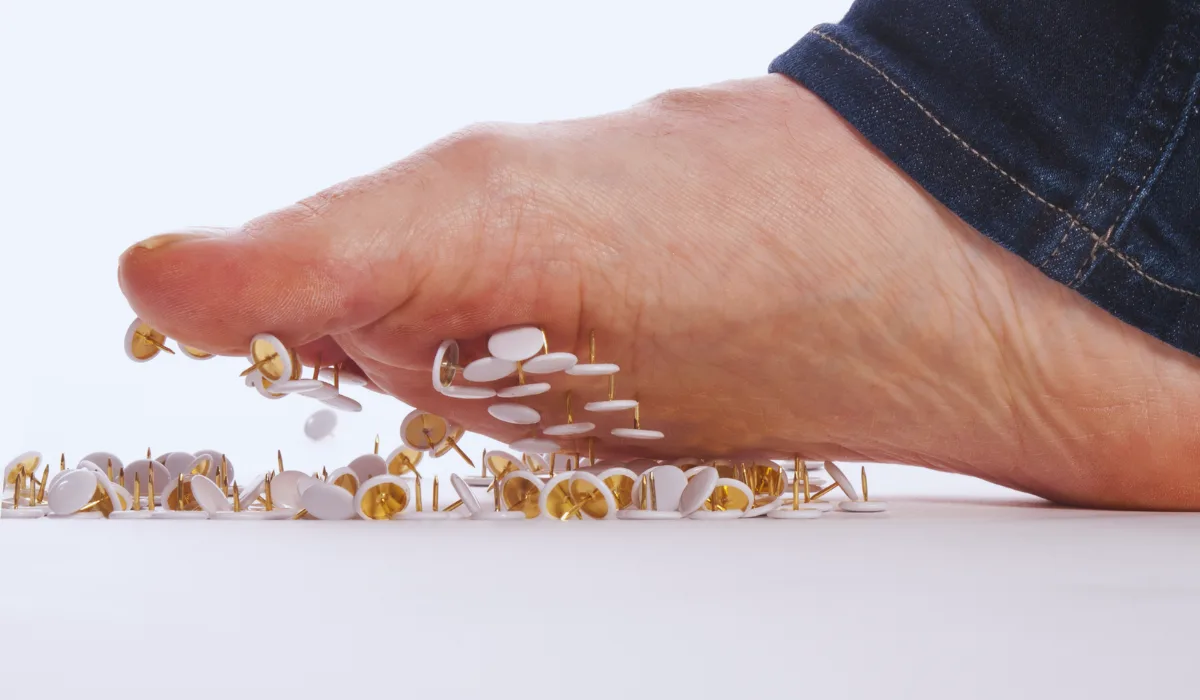Neuropathy or nerve damage targets different nerve groups or networks of nerves in the human body. This damage or dysfunction of nerves significantly impacts the central nervous system, consisting of the brain, spinal cord, and peripheral nervous system.
In simpler words, Neuropathy is an abnormality or disorder involving the nerves. Neuropathy can affect nerves throughout the human body and manifest in multiple ways.
Different Types of Neuropathy
Neuropathies can be classified depending on the body part they are affecting. For instance:
- Polyneuropathy: It is the most common type of neuropathy that affects several nerves.
- Mononeuropathy or Focalneuropathy: It affects only one nerve at a time.
- Peripheral Neuropathy: Another common type of neuropathy that affects the peripheral nerves and body parts, including feet, legs, arms, and hands.
- Diabetic Neuropathy: It is commonly caused by long-term diabetes affecting particularly nerves of the hands and feet.
- Autonomic Neuropathy: It affects the nerves that control involuntary body functions, including digestion, heartbeat, blood pressure, and bladder functioning.
- Idiopathic Neuropathy: It may affect any nerve and can have any underlying setbacks.
- Compression Neuropathy: It may compress or squeeze the nerves, resulting in damage. One of the common symptoms of Compression Neuropathy is the Carpel Tunnel Syndrome.

Common Causes of Neuropathy
Neuropathy occurs due to a range of factors, including the following:
- Increased blood sugar levels, particularly diabetes, can damage nerves over an extended time, especially in the legs and feet. In fact, ‘Diabetic Neuropathy’ is a very common form of neuropathy.
- Physical injuries, accidents, or trauma in the form of dislocation, fracture, or even a direct impact on nerves can lead to neuropathy.
- Infections include Human Immunodeficiency Virus (HIV), Lyme disease, and Herpes simplex virus.
- Autoimmune conditions like Lupus, Rheumatoid arthritis, and Guillain-Bareee syndrome make the immune system attack the body’s tissues, including nerves.
- Exposure to lead or certain chemicals.
- Inherited genetic disorders.
- Chronic alcohol abuse.
- Medicines, especially the ones used in chemotherapy, may lead to side effects of Peripheral Neuropathy.
- Imbalance in electrolytes and kidney disorders.
- Nutritional deficiencies, especially deficiency of B Vitamins (B1, B6, and B12).
- Poor, non-nutritious diet.
- Lack of physical activities and sedentary lifestyle.
- Excessive weight or obesity.
- Smoking.
- High Blood Pressure.
- Poor quality of sleep and inadequate sleep.
Signs and Symptoms of Neuropathy
Neuropathy can manifest in different ways, and here are some common signs and symptoms of the same:
- Tingling and Numbness a common and early sensations.
- Sharp, shooting, persisting pain, especially in the affected areas.
- Muscle weakness affecting coordination and movement.
- Touch sensitivity and pain.
- Loss of coordination resulting in walking difficulty etc.
- Coordination and balancing issues.
- Temperature sensitivity.
- Dysfunction of the autonomic nervous features, including changes in blood pressure, heart rate, and digestion.
- Sleeping difficulty or insomniac due to pain.
- Blurred or doubled vision.
- Slurred speech or speaking difficulties.
How to Reduce Neuropathy?
Reducing Neuropathy involves medical treatment along with managing symptoms through lifestyle changes. Here are some common strategies to follow:
However, along with (ideally before) these strategies, reach out to a healthcare professional and get your condition appropriately diagnosed. Depending on the symptoms, the concerned doctor may physically examine you or conduct specific tests.
Conclusion
Neuropathy is commonly treated through topical creams, ointments, and patches. These methods mainly involve capsaicin and lidocaine for pain relief. The doctors may also suggest prescription medications to control nerve pain. In severe conditions, surgery or neuromodulation are other options to consider.
Neuropathy is a common condition that increases with underlying health conditions and age. If you are experiencing any symptoms, consult a healthcare professional before the condition becomes severe.
References
- Peripheral Neuropathy. Mayo Clinic. August 11, 2022.
- How Does the Nervous System Work? InformedHealth.org. August 19, 2016.